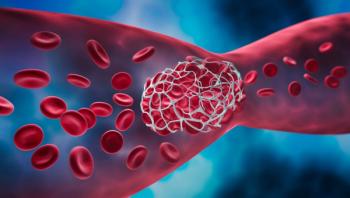
Gene Therapy for Hemophilia Is on the Brink of FDA Approval
CSL Behring's gene therapy, called EntranaDez, may be approved later this month. BioMarin, Pfizer, Bayer and Freeline Therapeutics also have gene therapies for hemophilia in development.
The pipeline for hemophilia is brimming with novel treatments, and many have expected FDA approval dates within the next two years.
In a keynote talk at AMCP Nexus 2022 last month, Aimee Tharaldson, Pharm.D., senior clinical pharmacist at Emerging Therapeutics at Evernorth, discussed recently approved and up-and-coming specialty drugs. Among them was an abundance of gene therapies targeting several conditions, including hemophilia.
Related:
In her presentation, Tharaldson listed eight gene therapies for hemophilia, some with anticipated approval dates within the next few months. Of the eight, three are specific for hemophilia B, for which currently there are no approved gene therapies.
CSL Behring, in suburban Philadelphia, leads the pack with EntranaDez (etranacogene dezaparvovec) for the potential treatment of hemophilia B. In May 2022, the FDA accepted the company’s biologics license application (BLA), and a decision is anticipated toward the end of this month.
Following close behind is BioMarin’s valoctocogene roxaparvovec, a gene therapy for the potential treatment of hemophilia A. Valoctocogene roxaparvovec has been approved for conditional use in the European Union and is marketed under the trade name Octavian. In the United States, the FDA accepted a BLA for the investigational therapy in October of this year. A decision is expected by June 2023.
Other candidates for hemophilia B gene therapy include Pfizer’s fidanacogene elaparvovec and Freeline Therapeutics’ verbrinacogene setparvovec. Spark Therapeutics developing fidanacogene elaparvovec but licensed the drug to Pfizer, which is now shepherding the drug through phase 3 trials and the FDA approval process. Freeline Therapeutics plans to initiate phase 3 studies for verbrinacogene setparvovec in early 2023. Both companies are hoping for FDA approval in 2024.
Pfizer, Genentech, and Bayer also have gene therapy candidates in the pipeline for hemophilia A. These are expected in the market during 2024 and 2025.
Although gene therapy holds promise for improved quality of life for those living with hemophilia, Tharaldson points out that the annual cost of these one-time therapies could be as high as $25 billion by 2034. She also notes that, although some of these therapies have been hailed as potentially curative, there is currently not enough data to confirm this claim.
Newsletter
Get the latest industry news, event updates, and more from Managed healthcare Executive.























